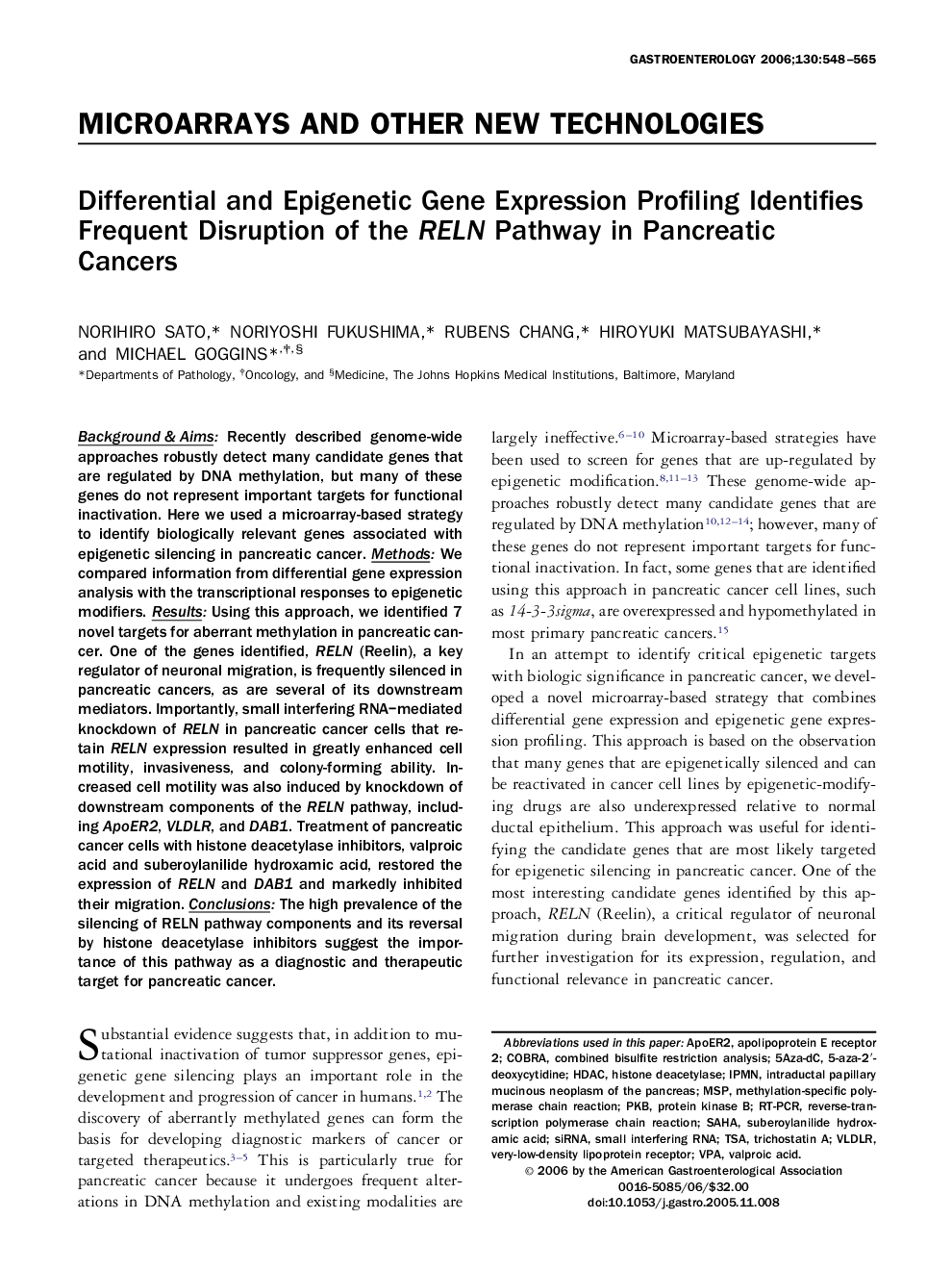| Article ID | Journal | Published Year | Pages | File Type |
|---|---|---|---|---|
| 3299468 | Gastroenterology | 2006 | 18 Pages |
Abstract
Background & Aims: Recently described genome-wide approaches robustly detect many candidate genes that are regulated by DNA methylation, but many of these genes do not represent important targets for functional inactivation. Here we used a microarray-based strategy to identify biologically relevant genes associated with epigenetic silencing in pancreatic cancer. Methods: We compared information from differential gene expression analysis with the transcriptional responses to epigenetic modifiers. Results: Using this approach, we identified 7 novel targets for aberrant methylation in pancreatic cancer. One of the genes identified, RELN (Reelin), a key regulator of neuronal migration, is frequently silenced in pancreatic cancers, as are several of its downstream mediators. Importantly, small interfering RNA-mediated knockdown of RELN in pancreatic cancer cells that retain RELN expression resulted in greatly enhanced cell motility, invasiveness, and colony-forming ability. Increased cell motility was also induced by knockdown of downstream components of the RELN pathway, including ApoER2, VLDLR, and DAB1. Treatment of pancreatic cancer cells with histone deacetylase inhibitors, valproic acid and suberoylanilide hydroxamic acid, restored the expression of RELN and DAB1 and markedly inhibited their migration. Conclusions: The high prevalence of the silencing of RELN pathway components and its reversal by histone deacetylase inhibitors suggest the importance of this pathway as a diagnostic and therapeutic target for pancreatic cancer.
Keywords
TSACOBRART-PCRHDACIntraductal papillary mucinous neoplasm of the pancreasPKBSAHAApoER2IPMNMSPVPA5-Aza-2′-deoxycytidineSmall interfering RNAsiRNAVLDLRSuberoylanilide hydroxamic acidcombined bisulfite restriction analysisTrichostatin Ahistone deacetylaseValproic acidmethylation-specific polymerase chain reactionreverse-transcription polymerase chain reactionprotein kinase BApolipoprotein E receptor 2very-low-density lipoprotein receptor
Related Topics
Health Sciences
Medicine and Dentistry
Gastroenterology
Authors
Norihiro Sato, Noriyoshi Fukushima, Rubens Chang, Hiroyuki Matsubayashi, Michael Goggins,
